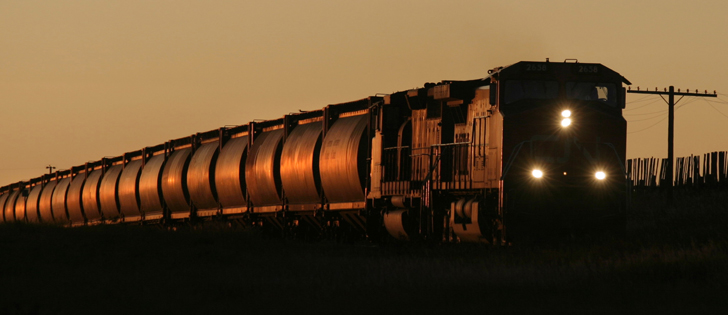Knowing a train is coming will allow elevator managers to give real bids instead of ‘stink bids’
This winter’s wide basis levels could quickly narrow if trains start moving soon at a decent pace, says an analyst who follows that market.
“Whatever tentative improvement we have seen to this date is going to accelerate as the logistical problem begins to end,” said Harold Davis, the analyst who operates Prairiecropcharts.com.
“I’m confident once we get some action on the trains, we’re going to see these value relationships tighten up towards where they were in the past.”
Davis described current basis as “unbelievably a bad level” compared to typical levels.
Read Also

Volatile temperatures expected for this winter
DTN is forecasting a lot of temperature variability in the Canadian Prairies this winter. Precipitation should be close to average.
For instance, hard red spring wheat in Saskatchewan faced an average per bushel basis level of $1.20 under Minneapolis hard red spring wheat futures in the year before the 2013 bumper harvest began putting pressure on the system. The range was 50 cents under to $1.50 under.
On March 7 the Saskatchewan average was $2.77 under and the week before it was $2.94 under.
The average canola basis was, on average, 50 cents per bu. under the ICE Futures contract, with a range of zero to $1 under. However, on March 7 it was $1.22 under.
It means a return to regular crop movement has the potential to improve basis by dozens of cents per bushel just to get to the worst part of the typical range.
There are massive supplies of crop on the Prairies, but Davis said the winter’s appalling basis quotes might not have been sound representations of cash market values.
He said elevators often couldn’t move product at all, so they weren’t interested in buying crops.
However, many managers felt obligated to make some offer so that their regular clients could have something to consider.
As a result, they posted bad bids that they doubted anyone would take.
Davis said the recent federal carload targets and better weather will likely alleviate stress on the system, which means elevator managers could soon be turning over their product again and be back bidding for crops.
“The minute the elevator manager knows that he’s going to get a train … he’s going to be giving real bids instead of stink bids,” said Davis.
“You’re going to see those basises tighten up considerably.”
Just getting to the middle of the previous basis ranges would narrow the canola basis by more than 70 cents per bu. and the hard red spring wheat basis by about $1.55 per bu. , he added.
















